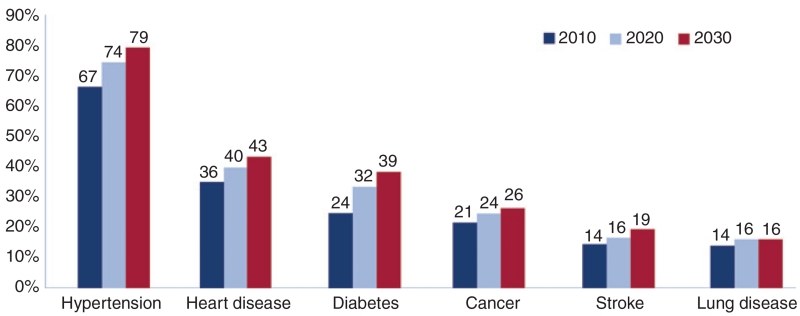By 2030, the youngest baby boomers will be eligible for Medicare, swelling the estimated U.S. population aged 65 or older from just under 40 million today to 67 million. According to predictions using the Future Elderly Model these individuals will live longer but, for many, those extra years will come with increased disability.
The 2030 Medicare recipient will likely be a woman, disabled, and suffering from either one or a combination of chronic health conditions such as hypertension and diabetes.
She’ll also have either taken some college courses or obtained a degree, and she will be a nonsmoker.
These findings have significant implications for policymakers as they grapple with how to manage the Medicare program, improve the health of the population, and treat chronic disease.
The full study is available at Forum for Health Economics and Policy. A press release about the study is available here.
Citation: Gaudette, É., Tysinger, B., Cassil, A., & Goldman, D. P. (2015, December). Health and health care of Medicare beneficiaries in 2030. In Forum for Health Economics and Policy (Vol. 18, No. 2, pp. 75-96). De Gruyter.


You must be logged in to post a comment.